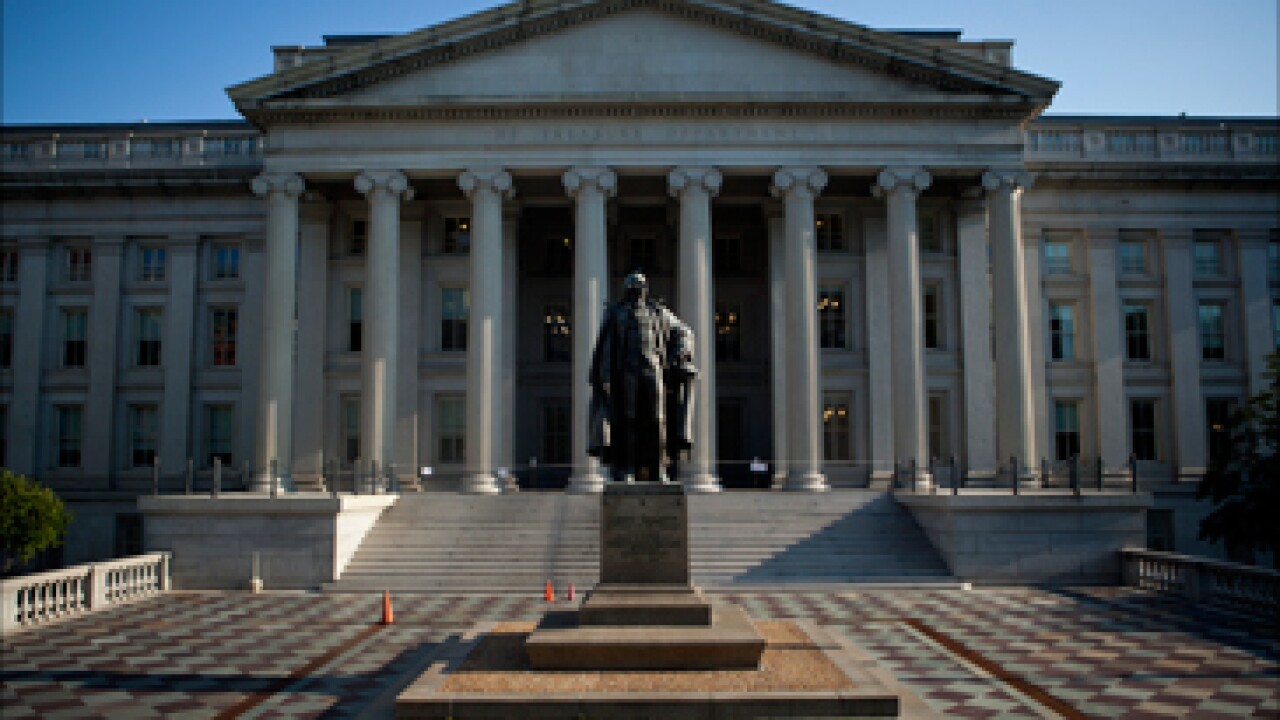-
While the Financial Crimes Enforcement Network has finalized some Corporate Transparency Act rules, the timetable is unclear for regulations involving customer due diligence or database access for banks.
October 5 -
A new Treasury Department request for comment invites the public to weigh in on how cryptocurrencies are used in illegal activities. It's part of the Biden administration's larger push to create a regulatory framework for digital assets.
September 19 -
As Treasury cracks down on DeFi, observers say merging the worlds of traditional and decentralized finance is an increasingly impossible dream.
September 13 -
After the Office of the Comptroller of the Currency cracked down on a $2.8 billion-asset bank, industry observers expect more scrutiny of the ties between banks and financial technology startups.
September 6 -
It remains to be seen what the capped price for Russian oil will be or whether the move will stabilize world energy prices.
September 2 -
The 2012 order, which came alongside fines to U.S. authorities totaling nearly $2 billion, had sullied the London-based bank's reputation. "Over the last decade HSBC's employees have worked hard to transform the bank's financial crime risk management capabilities," HSBC says.
September 1 -
Banks have long lamented the lack of transparency surrounding the government's use of suspicious activity reports, which are submitted to Fincen and passed along to the department.
August 25 -
The Biden administration is poised to put its stamp on the banking regulatory landscape, but there are few slam-dunk solutions that will satisfy both the industry and a vocal Democratic base.
August 2 -
Robinhood Markets' cryptocurrency arm was fined $30 million by New York's financial regulator after the brokerage was accused of violating anti-money-laundering and cybersecurity rules.
August 2 -
The operators of a Texas payments firm with ties to the U.K. pleaded guilty in the U.S. to money laundering failures after their business facilitated the shipping of $160 million to Nigeria over about three years.
July 15 -
The lender has been struggling with a series of scandals that have sent its shares to near-record lows, and may face a second criminal indictment in an unrelated case later this year.
June 27 -
-
The agency recently updated a policy document to include technological innovation as a top priority and said it was considering creating a safe harbor for those who develop new products to fight financial crimes.
May 26 -
-
A bipartisan group of senators Tuesday urged the Treasury Department and the Financial Crimes Enforcement Network to speed up implementation of the Corporate Transparency Act. It's only the latest of several efforts by lawmakers urging regulators to move faster since Fincen missed the statutory implementation deadline in January.
May 10 -
The number of suspicious activity reports involving cryptocurrency topped 90,000 in 2021, according to the Financial Crimes Enforcement Network. The reason for the uptick may be that crypto is becoming more mainstream.
May 2 -
Citigroup has been released from a 2012 enforcement action that faulted its anti-money-laundering efforts. But company executives are expected to spend a lot of time over the next few years seeking to resolve a pair of more recent consent orders.
May 2 -
Deutsche Bank's offices in Frankfurt are being searched by law enforcement authorities over reports about potential money laundering that were filed by the lender.
April 29 -
Acting Director Himamauli Das acknowledged concerns from Democratic lawmakers that Fincen was moving too slowly to implement beneficial ownership rules but said the agency "will likely continue to do so, because our budget situation has required us to make significant trade-offs among competing priorities.”
April 28 -
Anchorage Digital Bank has an inadequate AML compliance program and will have to create a committee within 15 days to develop a remediation plan and submit progress reports, according to the Office of the Comptroller of the Currency.
April 21

















